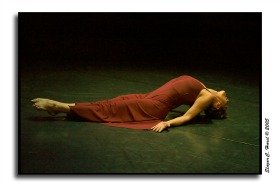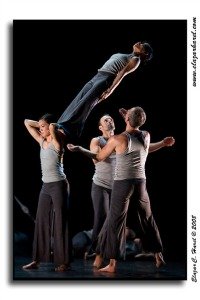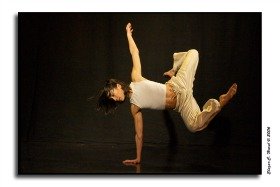| Back to Back Issues Page | |||||||||||
 |
|||||||||||
|
THE DANCER INCOME, The Dance Thinker, Issue #2. December 23, 2010 |
|||||||||||
The Dance Thinker Issue # 2, Dec 23, 2010
1. Check out our new gallery of dance VIDEOS. Articles 1. The Dancer Income.
- A page for contemporary dance announcements in which you can post your news about workshops, auditions, performances, meetings or any current, related items. - A contemporary dance blog that will automatically distribute what you post to facebook, twitter and all subscribers to the site’s RSS feed. - A worldwide, contemporary dance directory of schools, companies and websites to which you can submit your contact information. - Several pages in which you can participate with contributions, questions, ratings or comments. - A contact form through which you can address to me directly if you have questions, ideas, wishes, suggestions or commentaries. 2. It is easy to subscribe to The Dance Thinker. If you know somebody that would profit from receiving our e-zine, just let her/him know about the small subscription form at the right column on every page in the site.
News 1. Check out our new gallery of dance VIDEOS. The gallery for VIDEOS is live!. It’s easy to find it through the site’s navigation bar. Just click on the button that says VIDEOS and you’ll be there. You’re all invited to post your material. Just contact me and I’ll tell you how to proceed. Articles
1. THE DANCER INCOME. Some time ago, during one of my surfing routines, I crossed across a web page (at guardian.co.uk) with a headline that struck me. The title said: Wage slaves: careers profiled : Guess what… the list showed below included “Ballet Dancers”. The headline alone reawakened a whirl of questionings that visit my spirit from time to time. …Slaves? Do you feel how strong that word is? What is the reality of that statement? Why is it that our current society gives so little value to dance? Wouldn’t there be a way to change this situation? And if that is known for ballet dancers, what can we say about contemporary dancers, who are currently even less recognized? When I think of the earnings of other professions, I confess that sometimes I feel really overwhelmed. According to the 2009 data of the U.S. Bureau of Labor Statistics, the median hourly income of a lawyer is more than 50 USD; dentists get more than 70; surgeons more than 80 (and that is when they are simple employees… not to talk about what they get for private businesses…), and the dancer income is 13.74 USD.
I’ve had this conversation with people. The first justification given is always the same: “those professionals have spent about ten years of their lives studying”… That doesn’t solve my concern at all, because dancers usually study a MINIMUM of eight years. So if it is a matter of TIME spent on the preparation for the job, we’re not far from the others, and for some comparisons we study even more. People say that there’s also the civil responsibility matter. The argument is that what an engineer does professionally (or a doctor or a lawyer…), can have dangerous consequences, so they need to be highly protected. I don’t understand the exact meaning of this, because usually these professionals have insurances that cover those eventualities. If those professionals need an extra income to pay for their legal security, we could say that dancers also need it to protect themselves from the vulnerability to injuries, which can halt work for long periods and even end careers. And concerning our civil responsibility, I’d say that we work over the construction of culture and collective imaginary, which is like saying that instead of building bridges, we build humanity! Who has more responsibility? Doctors have a great responsibility. I agree with that, because health is the main and irreplaceable condition for life. But, even if you talk with professionals from the medical field, you’ll see they agree that prophylaxis (this is preventive medicine) is the best of medicines… Has anyone remarked how healthy people that dance are? There are exceptions of course, but I mean, everyone knows about the enormous prophylactic potential of dance. And that is not only from the physiological point of view, but also from the mental one. So, why is dance considered so different from preventive medicine, in terms of economic value? You go to a dental prophylaxis, you pay 60, you go to a dance class, you pay 6…
The third reason given exasperates me (really). You hear saying that roads or houses are a need, laws are a need, etc…, but dance or/and arts are like a luxury, or something we (humans) can live without. Honestly, I’m impressed of how humans lose awareness of the process of getting mentally or spiritually sick because of their following of completely prosaic (non poetic) lives. I’ll quote a traditional tale to illustrate what I mean: “Once upon a time there was a Chinese man whose only income was ten cents. He used to spend half and half in fish and flowers. When somebody scolded him for such a waste, he answered: I need the fish to live and the flowers to want to live.” It’s weird, but for some reason, humans tend to forget that we indeed need the grace of poetry to survive, because it gives sense to life. And the importance of that is of the size of HALF and HALF, like the Chinese man knew so well. Rich and poor, all humans search for identifications and senses, which are always expressed in poetical ways. This need lies in the deep foundations of the self. But still, this being so obvious, we live in the era of depression…
Now, people say: “dancers love what they do. Performing for an appreciative audience is a massive buzz, and when a production comes together it is very satisfying. They work closely together, establishing a group bond that creates a great working environment. Touring companies travel locally and sometimes abroad. Each company performs a few different productions each season, so there is little opportunity to get bored…” WOW… what a myth. I will not say that what we do is not exciting and pleasant. It IS. But wait a minute… have you ever felt that suddenly you completely understand the meaning of the word EXHAUSTION?… . I bet this is a word dancers know better than many workers… What about the bodily pain (real pain), due to excessive rehearsals or performances during unhealthy timetables adjusted to the audiences needs? Has anybody thought about the discipline needed to train daily and staying fit, which often requires exercise on top of the daily two-hour classes for basic maintenance and six-hour rehearsals of most companies? And that story about ideal working groups where dancers have fun while working…! We know how intense the processes of development of new productions are. They are not like fairly tales at all. There are always disagreements and conflicts which get sometimes really heavy. There’s also the fact that dancers often work nights and weekends, which is when performances are generally scheduled, and they might travel frequently because dance companies usually take their shows on tour. And those trips are not to have fun. They are hard and completely different from going on vacations. And still we have an audience expecting us to imbue each performance with emotion or an extreme amount of energy that makes people go home happy and excited... and if we don’t achieve that, we’re considered as a fake…
Yes, dancers love our job, but what we do is not an activity of professional leisure, as the myth would make people believe. So, that last reason is not convincing for our socially determined low wage. Neither is it for the fact that many dancers are self-employed and receive no social benefits (though in some rich countries, unionized dancers get some paid sick leave and vacations, as well as health insurance benefits), or the wide variation in the number of hours worked and the short-term nature of many jobs—which may last for 1 day or 1 week— which make it rare for dancers to have guaranteed employment that exceeds a few months. All of which forces dancers to supplement their income by taking all kind of jobs unrelated to the field. So, most dancers remain in the field only because they love to dance and would not be happy in any other occupation. But that is because we are awake to the reality of Poetry, intellectually or intuitively. I ask my self how many dentists would remain in their offices if they’d receive the income of a dancer. But still, when it’s time to talk about power and wealth, dancers are at the level of slaves (unless you’re the principal soloist of a Royal Ballet, which gives you the status of a middle class citizen)… What are we going to do to fix this? I suggest we start reopening this discussion. Let’s spread the word. Send this article to your dance colleagues, if you believe that this subject is important. Send me your comments or ideas and I will publish them at contemporary-dance.org, or do nothing… and go on comfortably (or yet not consciously uncomfortably) within our current state of reality. Maybe I’m just too chatty… Maria Naranjo, december 2010. Remember to feel free to answer this e-mail. Let me know what you think. I’m always opened to suggestions, ideas, wishes…
Editor and Webmaster of contemporary-dance.org
|
|||||||||||
| Back to Back Issues Page |



